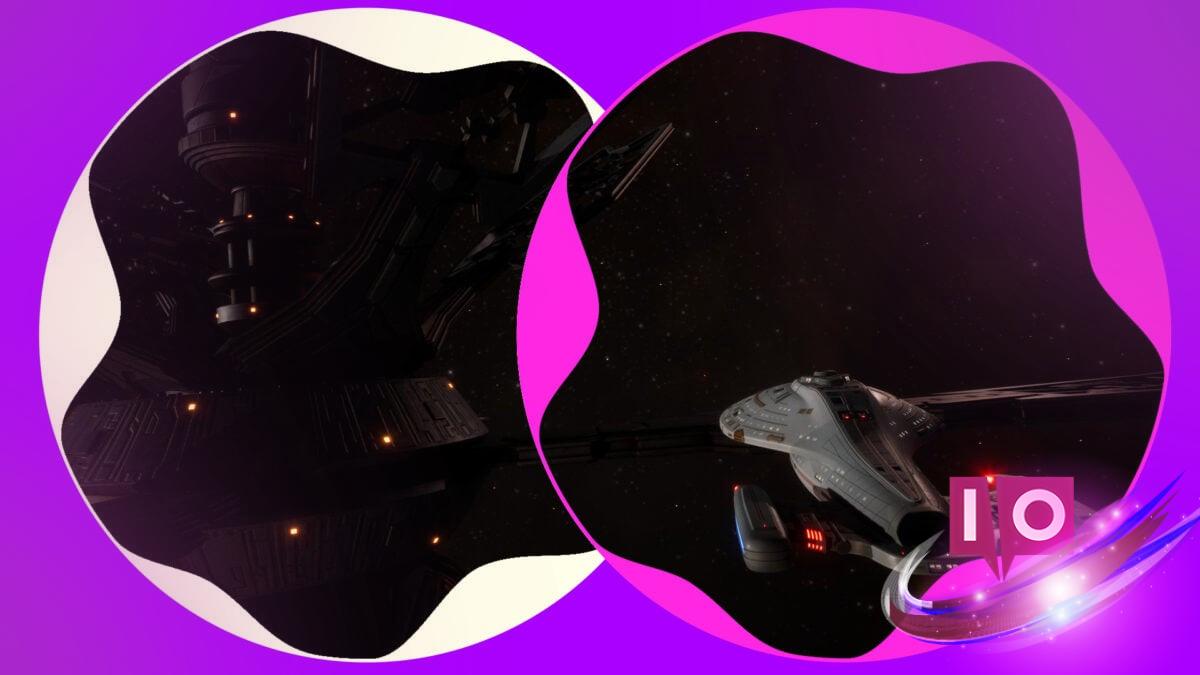If you’re a fan of both Star Trek and video games, Star Trek Voyager: Across the Unknown is the title that promises to ignite your passion for space exploration. This game places you at the helm of the starship Voyager after it’s catapulted 70,000 light-years into the Delta Quadrant. It’s your responsibility to navigate the challenges of managing the ship, making critical choices that can determine the fate of your crew, balancing resources, and deciding when to engage in conflict or negotiate peace.
When Gamexcite released a demo during Steam Next Fest, I couldn’t resist the opportunity to step into Captain Janeway’s shoes, pour myself a cup of her favorite beverage, and dive in. While Across the Unknown shows incredible potential, the tutorial phase feels overly guided, which can overshadow some of the game’s more intriguing aspects.
The demo itself is structured around the pilot episode “Caretaker,” introducing players to core mechanics like resource management and system oversight aboard Voyager. You’ll find yourself scanning planets for new resources while managing power distribution, crew morale, and research projects. One interesting twist is how the game treats the catastrophic event of the ship’s 70,000-light-year jump, forcing players to clear debris and rebuild facilities while juggling limited resources.
Despite these engaging elements, the experience remains too closely tied to the original storyline of “Caretaker.” As expected, you’ll find yourself thrown into the Delta Quadrant, facing memorable moments, interacting with familiar characters, and dealing with the Kazon. You’re ultimately faced with choices that determine whether to destroy a crucial array or use it to pave your way back home. However, the game restricts player agency during this introductory hour, keeping you on a narrow path rather than allowing for broad strategic decisions.
For my initial run, I aimed for accuracy, aligning my crew assignments with those in the series. The characters’ specialized skills come into play, although the experience often felt like managing a spreadsheet rather than a narrative-rich adventure. Making choices like whether to rescue Chakotay or Torres had consequences, yet they were somewhat limited by the overarching structure of the tutorial.
After concluding the demo, I didn’t have the chance to explore how my decisions would shape future events, leaving me eager for more. Unsurprisingly, I wished for a more dynamic narrative approach, especially after seeing the potential for emotional depth in the storyline. The tutorial-heavy experience emphasizes a sense of control over individual missions but feels restrictive in the larger context.
In a bid for variety, I decided to attempt a different approach; this time, I wanted to embrace chaos. I neglected crucial resources, failed to delegate effectively, and made reckless choices during away missions. My team, consisting of less-equipped characters, faced dire consequences during risky endeavors. However, after a few setbacks, I found that the game merely prompted me to reload my previous save instead of allowing for a dramatic fallout. The imprisonments I contemplated for my crew members led to amusing dialogue, but any significant divergence from the main plot still felt inconsequential within the demo’s framework.
Even at this early stage, Across the Unknown hints at a deeper potential for player-driven narratives and survival mechanics. The chance to truly shape Voyager‘s journey is there, but the demo leaves much to be desired regarding gameplay flexibility and impactful decisions.
How does Across the Unknown allow for player choices in its narrative? The choices available in the demo seem limited and primarily stick to the established events of the show, but the full game is expected to delve deeper into player-driven storylines.
Are there mechanics for resource management in Across the Unknown? Yes, managing resources, crew morale, and technology advancements plays a significant role in the gameplay, contributing to your overall effectiveness in navigating challenges.
Will players have the ability to change iconic moments in the storyline? In the demo, the impact of choices feels restricted. However, the developers have teased that the full game will include opportunities for significant narrative deviations, offering a tantalizing glimpse of what’s to come.
Is space combat an integral part of Across the Unknown? While combat is present, it’s not the game’s main focus. Players primarily engage in tactics centered around resource management and mission success rather than traditional combat mechanics.
When can we expect a full release of Across the Unknown? The release date is currently undecided, but anticipation is building among the fanbase as glimpses of gameplay continue to emerge.
In conclusion, while Star Trek Voyager: Across the Unknown has a solid foundation with intriguing mechanics, it still needs to refine how player choices impact the narrative. Fans of the franchise looking to explore Voyager‘s fate should stay tuned for updates and continue exploring the related content at Moyens I/O.
